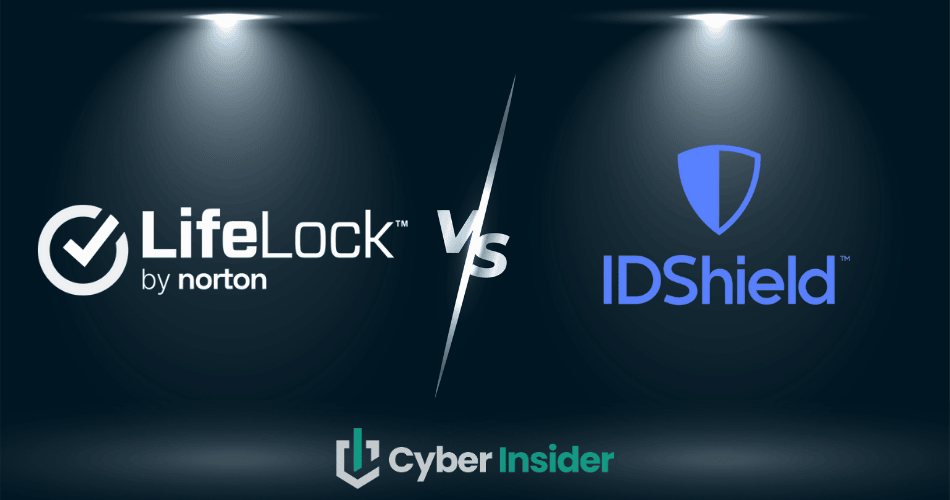
LifeLock vs IDShield: One made us feel safer — the other made us question if it was even worth it.
If you're torn between these two identity protection services, you're not alone. On paper, they both sound solid… but when we dug into the details, things got “interesting” fast.
With identity thieves getting bolder by the day, choosing the right protection isn’t just smart — it’s essential. So we rolled up our sleeves and tested both services to see which one actually delivers. From coverage and alerts to customer support and recovery help, we left no stone unturned.
You can fast forward to the core features comparison to cut to the chase on coverage and recovery.
By the end, you'll have a crystal-clear picture of what each service offers — and which one’s actually worth trusting with your identity.
| LifeLock | IDShield | |
| Website | LifeLock.Norton.com | IDShield.com |
| Pricing | $7.50 – $33.39/month | $14.95 – $34.95/month |
| Money-back guarantee | 60 days | 30 days |
| 3-bureau credit monitoring | 1-bureau (Equifax) or 3-bureau (Experian, TransUnion, and Equifax) premium plans | 1 bureau (TransUnion) and 3 bureaus (Experian, TransUnion, and Equifax) with premium plans |
| 24/7 customer support | Yes | Yes (for urgent issues) |
| Identity theft insurance | Up to $3 million | Up to $3 million |
| Best deal | 52% Off Coupon > | N/A |
Highlights from our LifeLock and IDShield comparison
LifeLock and IDShield both offer up to $3 million in identity theft insurance, but how they deliver that protection is where things get interesting. LifeLock takes a tiered, individual-focused approach, while IDShield leans into comprehensive coverage, especially for families.
IDShield stands out with its strong customer support and extras like multi-factor authentication. Meanwhile, LifeLock teams up with Norton antivirus, giving you layered protection against both identity theft and digital threats.
- Both services offer a 30-day trial, but LifeLock goes a step further with a 60-day money-back guarantee on annual plans — ideal if you want a bit more time to test the waters.
- Curious which one gives you the most bang for your buck? Check out the pricing and value breakdown to see where your money goes further.
Choosing identity theft protection: LifeLock vs IDShield compared
Before we delve into the specifics of LifeLock vs IDShield, let's take a moment to outline the key criteria for selecting the ideal identity theft protection service:
Monitoring: LifeLock and IDShield do a great job of keeping an eye on your personal info. They monitor everything from public records to credit files and even the dark web to spot potential threats. This helps you catch any issues early on.
Protection: Beyond just monitoring, LifeLock and IDShield provide tools to keep your personal info safe. LifeLock teams up with Norton antivirus for more security, and IDShield uses multi-factor authentication and offers family plans. Both services also help remove your data from risky online sites.
Notifications: Quick alerts are essential for stopping identity fraud. LifeLock and IDShield both notify you of suspicious activity right away, helping you take swift action.
Resolution: If identity theft occurs, both LifeLock and IDShield offer dedicated support to help you through the resolution process. They provide up to $3 million in insurance to cover eligible expenses and losses, ensuring you have the financial support needed to recover.
Let's swiftly break down the differences between LifeLock and IDShield to see which one fits your identity theft protection needs best.
LifeLock vs IDShield: Side-by-side comparison
Let’s put LifeLock and IDShield head-to-head in direct comparison to see which service might best suit your identity protection needs.
| LifeLock | IDShield | |
| Pricing | $7.50 – $33.39/month | $14.95-$34.95/month |
| Family-focused plans and features | ✅ | ✅ |
| 3-bureau credit monitoring and reports | ✅ (with top-tier plans) | ✅ (with premium plans) |
| Dark web monitoring and alerts | ✅ | ✅ |
| Identity theft insurance | Up to $3 million | Up to $3 million |
| Social media account alerts | ✅ | ✅ |
| Credit lock | ✅ | ✅ |
| Lost wallet remediation | ✅ | ✅ |
| Antivirus and VPN | ✅ (but for an extra fee) | ✅ (Trend Micro security suite) |
| Password manager | ✅ | ✅ |
| 24/7 customer support | ✅ | ✅ (for urgent issues) |
| Best deal | 52% Off Coupon > | N/A |
Which is more trusted? LifeLock vs IDShield review
To judge the trustworthiness of identity theft protection services, examine their track record, user base, and industry standard adherence.
Now, let’s take a closer look at both of our contenders.
LifeLock overview

| Starting price | $7.50/month |
| Supported platforms | Windows, macOS, Android, and iOS |
| Three-bureau credit monitoring | Yes (top-tier plans) |
| Identity theft insurance | Up to $3 million |
| Best deal | 52% Off Coupon > |
LifeLock, now part of Gen Digital Inc. after retiring its Norton LifeLock name in 2022, has been holding the line against identity theft since 2005. Over the years, it’s seen a bit of everything — a major merger with Norton 360, a $12 million FTC penalty for misleading advertising, and even a co-founder stepping down amid controversy. But like a cyber-savvy phoenix, LifeLock hasn’t just bounced back — it’s evolved.
These days, it comes loaded with credit monitoring, dark web surveillance, and financial account alerts. And that’s just scratching the surface. Explore the extra features LifeLock brings to the table to see how deep its protection really goes.
With over 8,000 reviews and a TrustScore of 4.8 out of 5 on Trustpilot, it’s clearly doing something right. That said, a small portion of users still report occasional hiccups — like false alarms or sluggish customer support.
Still, LifeLock isn’t standing still. Thanks to its ongoing partnership with Norton, it layers on bonus protections like a secure VPN and antivirus software, rounding out its toolkit for modern digital defense.
LifeLock pros and cons
Now, it's time to analyze the pros and cons that come with selecting LifeLock for your digital identity safeguarding:
+ Pros
30-day free trial period (recently added)
A VPN with family plans
Comprehensive identity theft protection service
- Can be combined with Norton 360 antivirus software
Up to $1 million insurance for certain costs incurred from identity theft
User-friendly interface and easy setup
Stolen wallet protection
Simple-to-use mobile apps
– Cons
- 3-bureau monitoring is available in higher-tier plans only
- Confusing paid plan structure
- Higher cost compared to some competitors
Time to see how IDShield stacks up.
IDShield overview

| Starting price | $14.95/month |
| Supported platforms | Windows, macOS, Android, and iOS |
| Three-bureau credit monitoring | Yes (with premium plans) |
| Identity theft insurance | Up to $3 million |
| Best deal | N/A |
With over four decades of experience behind it, IDShield — born from LegalShield (formerly Pre-Paid Legal) — has carved out its niche in identity protection by focusing on individuals and families alike. Beyond monitoring, it also tosses in antivirus software and a VPN to round out your digital defense.
Launched in 2011 as part of LegalShield’s expanded mission to provide accessible legal and security services, IDShield operates from Oklahoma under US jurisdiction, meaning it’s playing by strong privacy rules. That’s good news for anyone wary of offshore data practices. Speaking of privacy, here’s how it compares to LifeLock when it comes to security and data protection.
Customer sentiment? Pretty solid. With a Trustpilot score of 4.7 out of 5 based on 548 reviews, users generally feel well protected. That said, a few bumps in the road do exist — some folks have called out limited weekend support, a slightly clunky website, and slower responses to urgent alerts like IRS notifications.
Even with a few past legal headaches and the occasional customer gripe, IDShield has managed to steer clear of any known data breaches. That, in itself, is a strong signal of its commitment to keeping your sensitive info under lock and key.
IDShield pros and cons
Next, we'll examine the strengths and weaknesses of IDShield when it comes to meeting your digital identity protection requirements:
+ Pros
Credit file and personal info web scanning
Instant misuse alerts on all plans
Identity theft recovery aid including lost wages
Credit monitoring with one or three bureaus
SSN tracking for unauthorized use
Dark web checks for personal data leaks
Financial account vigilance
Complimentary Trend Micro security suite (VPN, antivirus, and password manager)
Licensed private investigators for theft restoration
– Cons
Confusing and cumbersome setup
Basic plans cover only TransUnion
No discounts for yearly plans
Bare-bones password manager
LifeLock vs IDShield: Insurance coverage and comprehensive protection compared
Both LifeLock and IDShield offer solid coverage with up to $3 million in insurance to help customers recover from identity theft. IDShield provides a comprehensive solution for individuals and families, with individual plans covering up to $1 million and family plans offering an impressive $3 million in identity theft insurance. This financial safety net ensures you have a reliable ally if identity theft occurs.
LifeLock also provides identity theft insurance but with a twist. The $1 million coverage mainly covers costs for lawyers and experts, while reimbursement for stolen funds and personal expenses starts at $25,000, depending on the plan. This tiered approach offers flexibility but requires careful consideration to choose the right plan for your needs.
| LifeLock | IDShield | |
| Windows? | ✅ | ✅ |
| macOS? | ✅ | ✅ |
| Android? | ✅ | ✅ |
| iOS? | ✅ | ✅ |
| Browser extensions? | ✅ | ✅ |
Additionally, LifeLock’s system supports both Windows and macOS, and its Norton Safe Web browser extension works with Google Chrome, Mozilla Firefox, and Microsoft Edge. Both services offer mobile apps for Android and iOS, making it easy to manage your protection on the go.
Core identity protection capabilities: Who wins LifeLock and IDShield face-off?
Both LifeLock and IDShield are great at monitoring your identity, but they do so in different ways. To pick the right one for you, check out their features for protecting your identity, like credit checks, dark web monitoring, and bank account security.
To start, let's check out their credit monitoring services.
Credit monitoring across the bureaus
| LifeLock | IDShield | |
| Identity theft insurance amount | $1M with all plans but only for lawyers and experts. Stolen funds and personal expenses vary from $25,000 to $1M, depending on the plan | $1M in coverage for lawyers and experts. |
| Stolen funds reimbursement | Up to $3 million with the “Ultimate Plus” plan. Only $25,000 reimbursement with the “Standard” plan. | Up to $3M reimbursement for unrecovered costs |
LifeLock and IDShield both offer solid credit monitoring, but each has its own strengths. LifeLock gives you the option to choose between one-bureau or three-bureau credit monitoring, depending on your plan. With the “Ultimate” plus plan, you get the most comprehensive coverage, including monthly credit reports and daily credit-score updates from all three major bureaus.
One thing we really liked was the ability to lock and unlock your TransUnion credit file with just a click, making it easy to control who can check your credit when you're applying for new credit or loans. However, the lower-tier plans are more basic, monitoring only one bureau and not including free credit reports, so you'd need to lock your Experian and Equifax files separately.
IDShield also gives you flexibility with single or three-bureau credit monitoring. Their service keeps a continuous watch on your credit reports from Equifax, Experian, and TransUnion, and alerts you to new credit applications, changes in payment history, and other important updates. We appreciated that everything is managed from a straightforward dashboard, but it's worth noting that the basic plans cover only TransUnion, so you'll need a more advanced plan for full coverage.
So, while both services do a great job, keep in mind that for comprehensive credit monitoring across all three bureaus, you'll need to opt for a higher-tier plan.
Dark web surveillance
Exploring the dark web, both LifeLock and IDShield keep an eye out for any personal information breaches. With their comprehensive identity monitoring, including dark web surveillance, IDShield keeps us informed, while LifeLock works hard to secure our details from cybercriminals.
| LifeLock | IDShield | |
| What does Identity monitoring include? | Dark Web monitoring with public record monitoring and data breach notifications | Dark web monitoring with data breach alerts, SSN monitoring, social media reputation management |
| What can you add to your watchlist? | Your name, date of birth, address, email addresses, credit/debit card numbers, phone numbers, health insurance IDs, and more | Your account records, email addresses, phone numbers, SSN and driver’s license numbers, credit/debit card numbers, and more |
| You’ll receive alerts for any suspicious activity? | ✅ | ✅ |
LifeLock’s dark web surveillance is a standout feature. It actively searches the hidden parts of the internet for any misuse of our personal details. If LifeLock finds anything suspicious, it sends us an alert right away, so we can take action to protect our accounts. This proactive approach gives us an extra layer of defense.
IDShield also does a great job tracking the dark web, monitoring 15 types of personal data like email addresses, phone numbers, and credit cards. Their dark web scan tool looks for leaks of sensitive information. If our data is found, IDShield quickly alerts us, making sure even the most elusive threats are caught. This gives us peace of mind knowing our information is protected.
Safeguarding financial and investment accounts
When it comes to financial security, LifeLock stands out with its stolen funds reimbursement feature. Depending on the plan you choose, you get varying amounts of coverage. The Ultimate Plus plan is especially great, as it extends protection to bank and investment accounts, even covering 401(k) investments. With this plan, you’re covered for up to $1 million in identity theft-related losses, including personal expenses and legal costs. The lower-tier plans start with a $25,000 limit for stolen funds and personal expenses, increasing to $100,000 for the mid-tier plans.
IDShield, on the other hand, offers up to $3 million in insurance across all its plans, giving every subscriber a solid financial safety net. Individual plans provide up to $1 million in coverage, while family plans, which include monitoring across all three major credit bureaus, offer an impressive $3 million in identity theft insurance. This comprehensive coverage ensures that if identity theft ever happens, you’ve got a reliable ally to help mitigate the financial impact.
Restoration services rundown
Restoration services are the cavalry that comes to your rescue if your identity is stolen. IDShield stands out with a team of licensed private investigators ready to help you reclaim your stolen identity, backed by up to $1 million in restoration services.
LifeLock also provides robust restoration services, though details aren't as prominently highlighted. However, IDShield’s personalized approach with dedicated investigators makes a noticeable difference in the support experience.
Additional digital defenses: LifeLock vs IDShield extras
In the arms race of digital security, LifeLock and IDShield do not shy away from equipping their subscribers with an arsenal of extra defenses. From secure VPN services to antivirus software, each service goes beyond identity monitoring to provide an extensive protective suite.
Secure VPN service
In an era where digital privacy is constantly under siege, a secure VPN service is crucial for safeguarding users’ online activities.
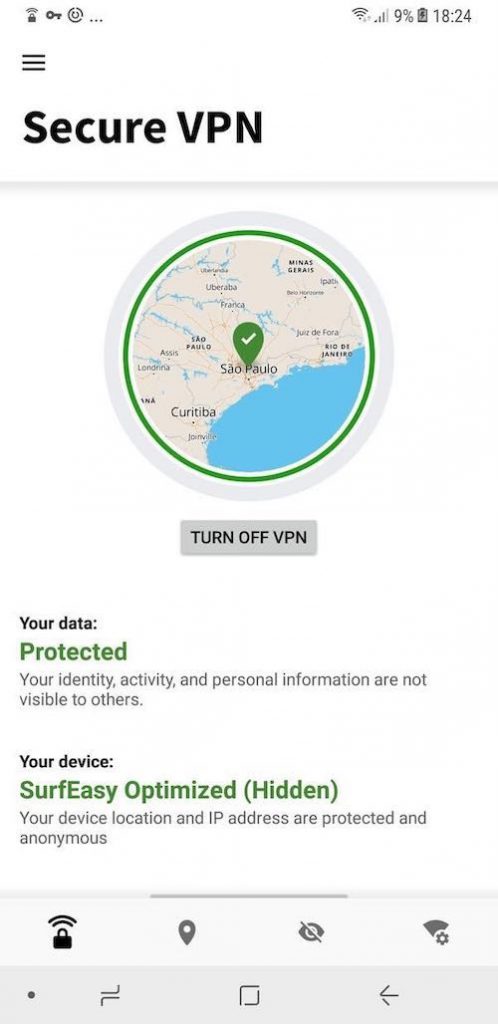
LifeLock’s VPN service includes features like a kill switch and split tunneling. Although it doesn’t come with Norton antivirus or VPN, you can pair LifeLock with Norton 360 for a stronger defense. Norton 360 offers proactive protection against malware and other online threats, along with a secure VPN for encrypted connections and private browsing.
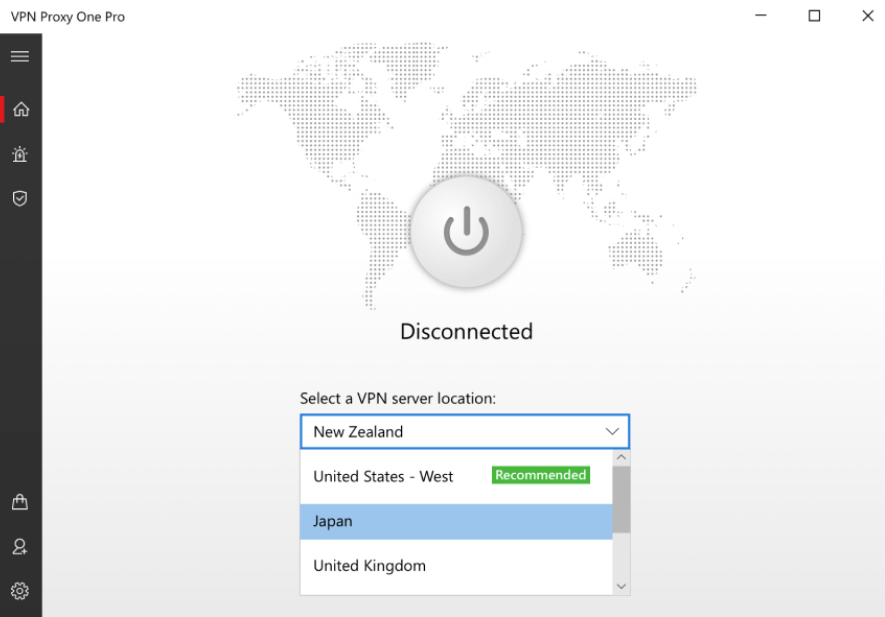
IDShield partners with Trend Micro for its VPN service, providing encryption that secures data traffic on public Wi-Fi networks. It offers VPN Proxy One, supporting Windows 10 and 11, with a choice between WireGuard and OpenVPN protocols. WireGuard offers high-speed connections with advanced encryption, while OpenVPN balances security and performance.
However, IDShield’s VPN has limitations in content access due to a small server network and slower speeds, making it less ideal for streaming and high-bandwidth activities.
Antivirus software
Malware and ransomware can really mess up your digital life.
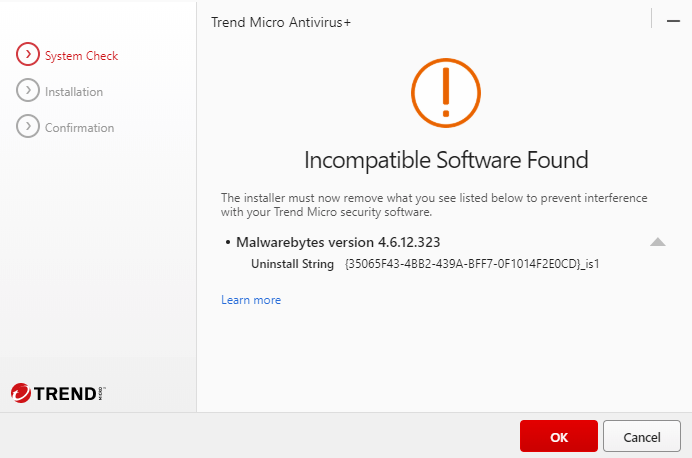
IDShield, partnering with Trend Micro, provides solid protection against these threats. This partnership ensures your devices are shielded from viruses, spyware, and phishing attacks, with real-time scanning and automatic updates to keep your defenses current.
LifeLock doesn’t have Norton antivirus software by default, but pairing it with Norton 360 offers superior protection. Norton 360 enhances security with real-time threat protection, a secure VPN for private browsing, and a password manager to keep your credentials safe.
We’ve found Norton’s anti-malware tools act as a vigilant shield, providing real-time protection against a wide range of threats like viruses, worms, trojans, and ransomware. Additionally, Norton 360 includes dark web monitoring, which alerts you if your personal information is found on the dark web, and a VPN that encrypts your online connections for added privacy.
Password manager
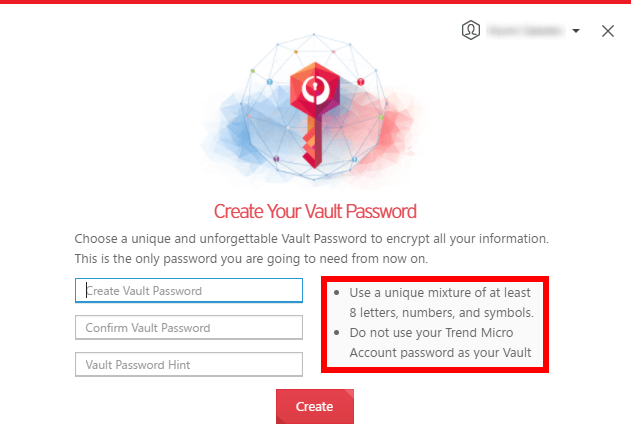
IDShield’s password manager, powered by Trend Micro, is a handy tool for managing passwords across your devices, including Windows, macOS, Android, and iOS. It uses a strong master password to keep your stored credentials safe. However, when we tried it, we noticed it sometimes missed capturing login details and lacked features like secure password sharing or digital legacy options.
LifeLock doesn’t come with a password manager, but you can pair it with Norton 360 for added security. Norton 360’s password manager not only secures your logins but also creates complex passwords and encrypts your information. This combination offers a more thorough approach to managing and protecting your online credentials, making it a great addition to your digital security toolkit.
Parental controls and child online safety
IDShield really steps up when it comes to protecting your kids from identity theft. It monitors their SSNs and personal info to catch any unauthorized use. If your child’s identity is compromised, they provide a private investigator to help restore it quickly and effectively.
LifeLock's “Family” plan, on the other hand, offers a thorough approach to child identity protection. It actively monitors your children's personal information and alerts you to any fraudulent activity. Plus, it includes robust parental controls and dark web scans to spot potential data leaks. If something does go wrong, LifeLock is quick to resolve the issue and offers stolen funds reimbursement, giving you peace of mind that your family's financial safety is covered.
Both services have their strengths, but LifeLock’s comprehensive approach, including the added benefit of stolen funds reimbursement, makes it a strong contender for overall family protection.
Ease of use and support: Which is more user-friendly, LifeLock or IDShield?
Choosing the right identity theft protection service can feel like navigating a maze. LifeLock and IDShield each tout strong security features, but the real test lies in their user experience. As we dive into our comparison, we've taken these services for a spin to give you insights into which one offers smoother sailing on your journey to safeguarding your identity.
So, let's roll up our sleeves and explore what sets them apart.
Setting up your protection
While LifeLock offers a user-friendly dashboard and guided setup process, IDShield's initial setup may seem more complex, requiring navigation through multiple logins on third-party sites. However, once past the setup, IDShield's interface is clear and straightforward, emphasizing the importance of a seamless user experience. With IDShield, enrolling typically takes just a few minutes, and you gain access to tools for monitoring personal information, credit files, and the dark web, all aimed at catching potential threats early.
Meanwhile, LifeLock's setup involves providing essential personal information, adding accounts for monitoring, and completing the purchase process. Despite minor differences, both services prioritize making the setup process as hassle-free as possible, ensuring that your protection is up and running smoothly.
Navigating your apps
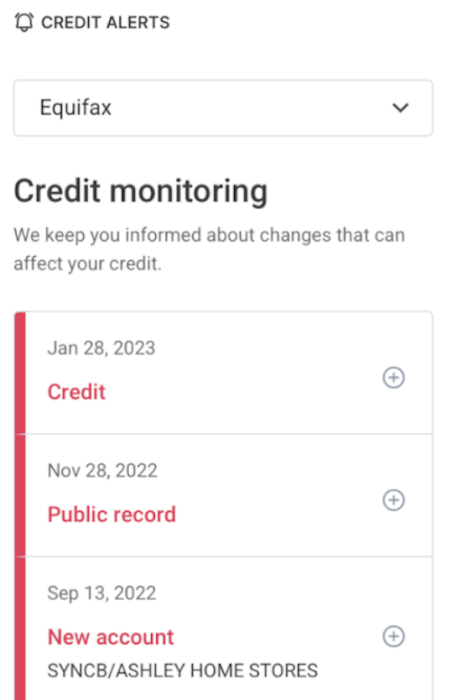
Our experience with IDShield’s mobile app has been positive overall. Despite occasional login issues reported by users, we found it easy to use and navigate. It provides essential features like dark web monitoring and credit score tracking, ensuring reliable on-the-go protection.
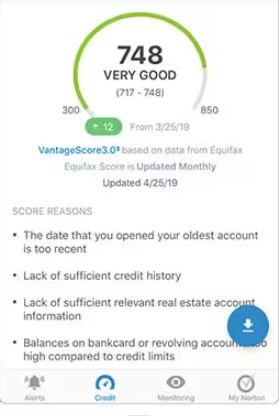
As for LifeLock’s mobile apps for Android and iOS, they simplify account management and provide instant alerts. While the availability of two separate apps may cause initial confusion, both offer user-friendly interfaces and robust functionalities like real-time alerts and dark web monitoring. Once logged in, managing your protection becomes effortless and intuitive.
Customer support and resources
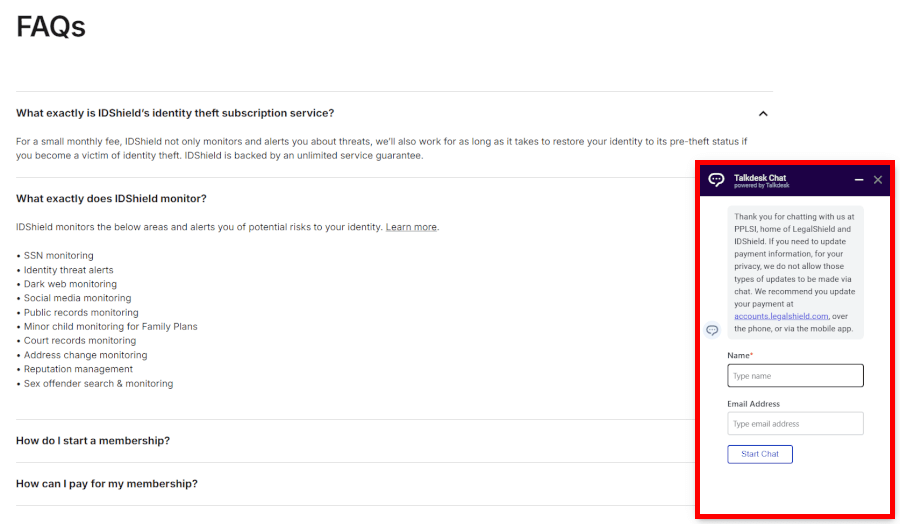
Navigating customer support is easy with both IDShield and LifeLock. IDShield offers live chat, phone, email, and 24/7 emergency assistance, ensuring quick and helpful responses. We've found their live chat particularly useful, and their round-the-clock emergency support is reassuring for urgent situations.
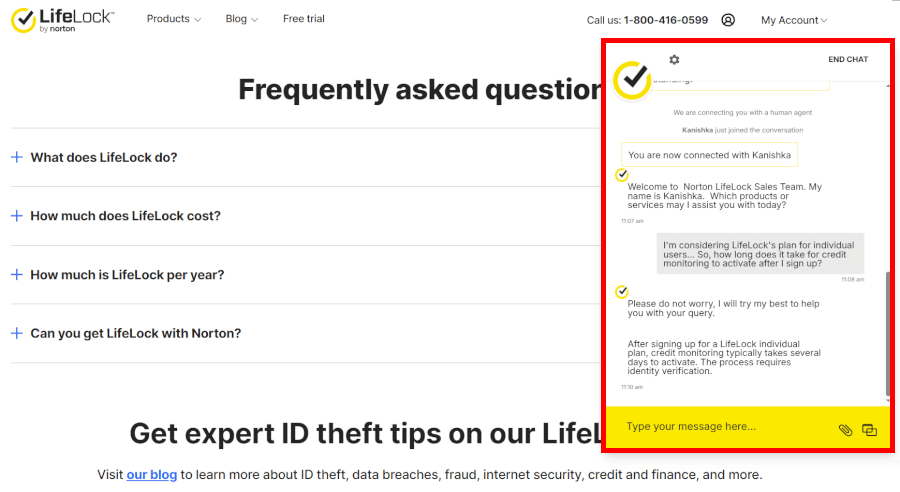
LifeLock also offers 24/7 support via phone and live chat, although we've noticed their expertise sometimes leans towards Norton's antivirus products. Despite this, their responsiveness and availability are commendable, with priority assistance for top-tier subscribers. While direct chat or email support isn't readily available, LifeLock's blog with articles and FAQs has been a helpful resource for resolving issues on our own.
Financial health: Who offers more helpful credit reports and scores?
When it comes to keeping an eye on your financial health, having clear and useful credit reports and scores is a big deal.
LifeLock’s premium plan is pretty impressive, offering monthly credit reports and daily credit score updates from all three major credit reporting agencies. Plus, you can lock or unlock your TransUnion credit file, which is super handy when applying for new credit or loans. However, their lower-tier plans only give you basic monitoring with one credit bureau and might not include free credit reports. If you’re on one of these plans, you might need to freeze or lock your Experian and Equifax credit files on your own for full protection.
IDShield, however, makes things simpler. Every plan gives you access to credit information, starting with one-bureau monitoring through TransUnion and going up to comprehensive three-bureau monitoring. Their individual and family plans cover up to 10 children, offering solid protection for your whole family. Even if you start with just one-bureau monitoring, their broader plans provide thorough credit monitoring and alerts, making sure everyone is protected from potential identity theft threats.
Security and privacy: Is LifeLock or IDShield a safer choice?
When it comes to security and privacy, both LifeLock and IDShield have a lot to offer. Each provides up to $3 million in insurance coverage, but they approach things a bit differently. LifeLock tailors its services to individual needs, while IDShield takes a uniform approach across all plans, ensuring solid protection and privacy for everyone.
| Security features | LifeLock | IDShield |
| Bank-level AES-256 encryption | ✅ | ✅ |
| Real-time threat and fraud alerts | ✅ | ✅ |
| Two-factor authentication | ✅ | ✅ |
| Dedicated privacy tools (VPN, ad block) | ❌ (separate Norton bundle) | ✅ (via Trend Micro) |
LifeLock has come a long way, tightening its security measures after past issues with the FTC. We've noticed these improvements and found them reassuring. IDShield, on the other hand, impressed us with its professional services and strict privacy policies. Both services use multi-factor authentication, which adds an extra layer of security to keep your data safe from unauthorized access.
One thing to keep in mind is that both LifeLock and IDShield might share personal information with third parties due to legal requirements. While they both offer strong identity protection, privacy-conscious users should be aware of this aspect.
Both LifeLock and IDShield use advanced encryption to protect your data. LifeLock uses strong encryption protocols to prevent data breaches, and IDShield employs AES 256-bit with TLS encryption. We appreciate that they both conduct regular security audits and offer helpful tips on maintaining personal data safety.
Plans and pricing: Does IDShield or LifeLock offer greater value for money?
Cost-effectiveness is a key factor when selecting an identity theft protection service. IDShield and LifeLock both have their unique pricing structures and features, but how do they stack up?
| IDShield plans | Price for individuals | Price for families |
| 1-bureau monitoring | $14.95/month | $24.95/month |
| 3-bureau monitoring | $19.95/month | $34.95/month |
First, let's take a look at IDShield. All of IDShield’s plans come with the same essential features. The only differences are the number of credit bureaus they monitor and whether you choose individual or family coverage:
Individual Plan (1-bureau monitoring) – $14.95/month: Includes credit file and personal info web scanning, instant misuse alerts, and access to licensed private investigators for theft restoration.
Individual Plan (3-bureau monitoring) – $19.95/month – Offers all the features of the one-bureau plan with the added benefit of monitoring across all three major credit bureaus.
Family Plan (1-bureau monitoring) – $24.95/month – Covers two adults and up to 10 dependent children with credit monitoring, dark web checks, and identity theft recovery aid.
Family Plan (3-bureau monitoring) – $34.95/month – Extends the family plan to include three-bureau monitoring for complete credit monitoring and protection.
IDShield’s transparent pricing ensures that customers are fully aware of what they are paying for, with no hidden charges or unexpected rate increases.
See all IDShield prices and deals here >
Now let’s see how LifeLock stacks up in terms of pricing and plan flexibility, especially if you're eyeing those multi-device, multi-user households.
| LifeLock plans | Price for individuals | Price for families (two adults) | Price for families (two adults and five kids) |
| Standard | $7.50/month | $12.49/month | $18.49/month |
| Advantage | $14.50/month | $22.09/month | $29.99/month |
| Ultimate Plus | $19.50/month | $33.39/month | $38.99/month |
Meanwhile, LifeLock’s pricing plans are designed to meet a variety of needs and budgets, offering protection for both individuals and families. Here's a simplified breakdown:
Standard: $7.50/month for the first year (then $12.49/month). Includes up to $25,000 in stolen funds reimbursement, $1 million for legal costs, and US-based identity restoration.
Advantage: $14.99/month for the first year (then $20.83/month). Offers up to $100,000 in stolen funds reimbursement and personal expense compensation, plus $1 million for legal costs.
Ultimate Plus: $19.99/month for the first year (then $29.15/month). Provides up to $1 million in stolen funds reimbursement and personal expenses, with three-bureau credit monitoring.
While the sheer number of plans can be overwhelming, they do offer comprehensive identity theft protection for families.
See LifeLock's latest prices and deals here >
While IDShield offers a 30-day free trial to test its identity protection services, LifeLock does not provide a free trial but compensates with a 60-day money-back guarantee on annual plans.
LifeLock vs IDShield: And the winner Is…
So, how do LifeLock and IDShield really stack up? Let’s break down the key areas to see who stands out where:
Trustworthiness: Tie
Availability and insurance: Tie
Core identity protection capabilities: IDShield
Additional digital defenses: IDShield
Ease of use and support: LifeLock
Financial health reports: IDShield
Security and privacy: IDShield
Plans and pricing: IDShield
These two are both top contenders, but IDShield’s no-fuss, everything-included approach makes it a strong pick, especially for families. LifeLock’s à la carte-style plans are great if you know exactly what kind of protection you need.
But with IDShield, what you see is what you get — no surprise renewals or hidden fees. It’s a clear win for budget-conscious users who want reliable protection without the drama.
Identity theft protection comparison guides on CyberInsider:
- Aura vs LifeLock
- Aura vs Experian IdentityWorks
- IDShield vs Aura
- Aura vs McAfee
- Aura vs NordProtect
- Aura vs Incogni
- Aura vs IdentityIQ
- Aura vs IDShield
- Identity Guard vs Aura
- Identity Guard vs LifeLock
- Identity Guard vs NordProtect
- LifeLock vs Experian Identity Works
LifeLock vs IDShield FAQ
What are the main differences between LifeLock and IDShield?
LifeLock offers a variety of plans, each with different levels of coverage and features, including the added benefit of Norton antivirus. On the other hand, IDShield keeps it simple with straightforward pricing and comprehensive coverage across all their plans, including options for families. Plus, IDShield teams up with Trend Micro to provide robust VPN and antivirus protection.
What are the downsides of using LifeLock and IDShield?
LifeLock's drawbacks include its complex pricing structure, higher costs, and limited credit bureau monitoring in the lower-tier plans. Some users have also experienced issues with alert management and customer service. On the other hand, IDShield's setup process can be a bit cumbersome, and its basic plans only cover TransUnion. Additionally, the password manager offered by IDShield has limited features.
How do the credit monitoring features of LifeLock and IDShield differ?
LifeLock offers one-bureau or three-bureau credit monitoring with premium plans providing monthly credit reports and daily credit-score updates. Additional features include home title monitoring, VantageScore 3.0 access, stolen wallet protection, data breach monitoring, and payday loan monitoring.
IDShield monitors credit from one or all three bureaus and sends alerts for new credit applications or changes. It also provides VantageScore 3.0 access, stolen wallet protection, data breach monitoring, and payday loan monitoring, but lacks home title monitoring.

Leave a Reply